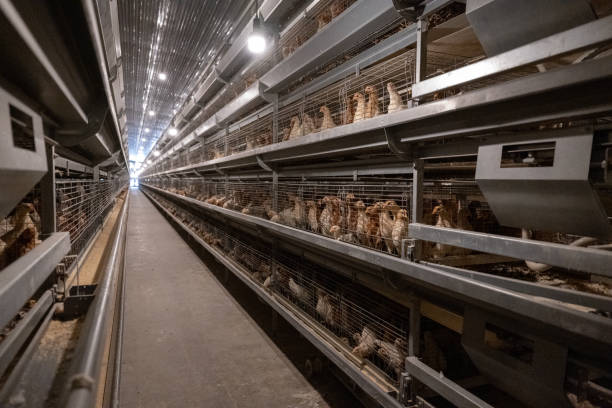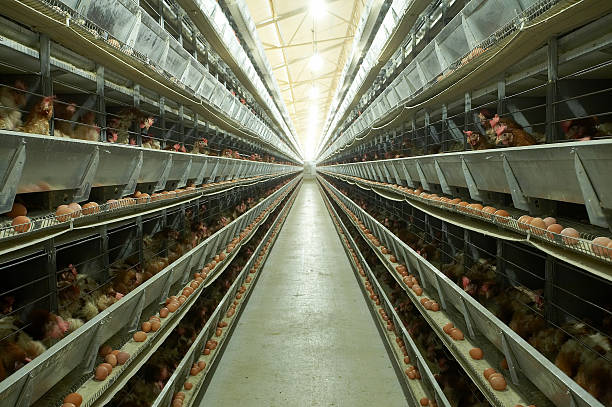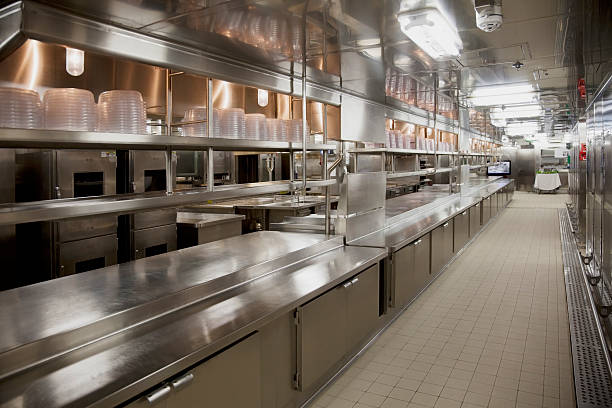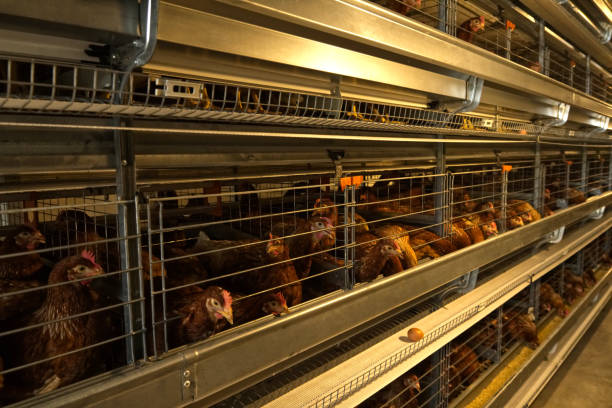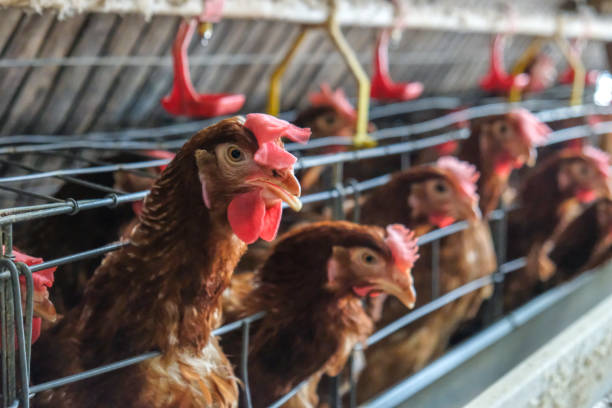Investing in Chicken Farming: Battery Cage Cost Analysis for Nigerian Poultry Owners
Investing in Chicken Farming: Battery Cage Cost Analysis for Nigerian Poultry Owners
For Nigerian entrepreneurs venturing into poultry farming, understanding the costs associated with different housing systems is crucial. Battery cages, a popular choice for intensive egg production, offer numerous benefits but also come with a significant initial investment. This article delves into a comprehensive cost analysis of battery cages for Nigerian poultry owners, exploring various factors that influence pricing and providing insights into making informed decisions.
What are Battery Cages and Why Choose Them?
Battery cages are a type of housing system used primarily for laying hens. They consist of multiple tiers of cages, typically made of wire mesh, arranged in rows and columns. Each cage houses a specific number of hens, providing them with access to feed, water, and a sloped floor that allows eggs to roll out for easy collection.
Several advantages make battery cages attractive to poultry farmers in Nigeria:
Increased Space Efficiency: Battery cages allow for a higher stocking density compared to free-range or deep litter systems, maximizing the number of birds that can be housed in a given area. This is particularly important where land is scarce or expensive.
Improved Egg Production: The controlled environment within battery cages, with consistent access to feed and water, contributes to higher and more consistent egg production rates.
Reduced Disease Risk: By separating birds into individual cages, the spread of diseases is minimized, and it is easier to monitor and manage the health of the flock.
Easier Management: Battery cages simplify management tasks such as feeding, watering, and egg collection, reducing labor costs.
Better Egg Quality: Eggs collected from battery cages are generally cleaner and have a lower risk of contamination due to the sloped floors and efficient collection systems.
Factors Affecting Battery Cage Costs in Nigeria
The cost of battery cages in Nigeria can vary significantly depending on several factors:
Cage Material and Construction: The quality of materials used in constructing the cages directly impacts the price. Galvanized steel cages, known for their durability and resistance to corrosion, are more expensive than those made from cheaper materials. Cage design, including the gauge of the wire, the spacing between wires, and the overall structure, also contributes to the cost.
Cage Capacity: The number of birds each cage is designed to house affects the overall cost. Cages that accommodate more birds per unit tend to be more expensive upfront, but they can offer better value in terms of space utilization.
Cage System Type: There are different types of battery cage systems available, including:
A-Frame Cages: These cages are arranged in an A-shape, with feed and water troughs running along the front. They are typically more affordable but may require more manual labor for egg collection.
H-Frame Cages: These cages are arranged in a vertical stack, maximizing space utilization. They often incorporate automated systems for feeding, watering, and egg collection, which increase the initial cost but can reduce labor costs in the long run.
Layer Cages: These are designed specifically for layer chickens. They are made with high-quality material to last longer and are designed to be automated.
Automation Level: The level of automation incorporated into the cage system significantly impacts the price. Automated feeding, watering, manure removal, and egg collection systems increase the initial investment but can lead to substantial cost savings in terms of labor and improved efficiency.
Manufacturer or Supplier: Different manufacturers and suppliers offer varying price points for their battery cages. Reputable suppliers with a proven track record of quality and customer service may charge more, but they also offer better warranties and support.
Import vs. Local Production: Battery cages can be imported or purchased from local manufacturers. Imported cages may be subject to import duties and shipping costs, which can increase the overall price. Local manufacturers, on the other hand, may offer more competitive prices and faster delivery times.
Quantity Purchased: The number of cages purchased can also affect the price. Suppliers often offer discounts for bulk orders, making it more cost-effective to purchase a larger quantity of cages at once.
Installation Costs: The cost of installing the battery cage system, including labor, materials, and any necessary modifications to the existing poultry house, should also be factored into the overall investment.
Location: Transportation costs from the supplier to your farm can vary depending on your location within Nigeria.
Estimating Battery Cage Costs: A Practical Approach
To estimate the cost of battery cages for your poultry farm, consider the following steps:
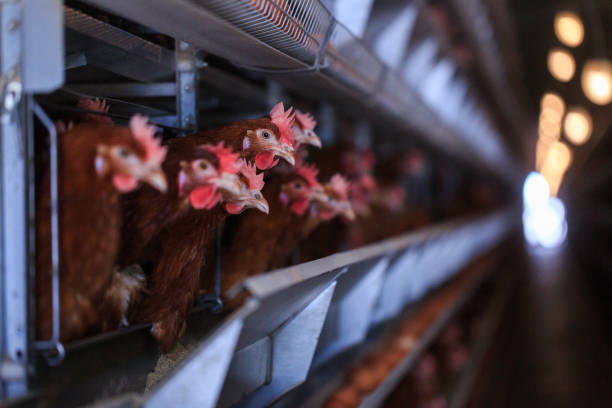
Determine Your Flock Size: Decide on the number of birds you plan to house in the battery cage system. This will help you determine the number of cages needed and the overall capacity of the system.
Choose a Cage System Type: Research different types of battery cage systems (A-frame, H-frame, layer cages) and select the one that best suits your needs and budget. Consider factors such as space availability, automation requirements, and labor costs.
Obtain Quotes from Multiple Suppliers: Contact several reputable battery cage suppliers in Nigeria or abroad and request detailed price quotes. Make sure the quotes include information on cage material, construction, capacity, automation level, warranty, and installation costs.
Compare Quotes and Evaluate Options: Carefully compare the quotes from different suppliers, taking into account the quality of the cages, the reputation of the supplier, and the overall value offered. Don’t just focus on the lowest price; consider the long-term cost-effectiveness of the system.
Factor in Additional Costs: Remember to include additional costs such as transportation, installation, electrical work, plumbing, and any necessary modifications to your poultry house.
Calculate the Total Investment: Add up all the costs to arrive at the total investment required for the battery cage system.
Cost Breakdown Example (Illustrative)
To illustrate the cost analysis process, let’s consider an example of a poultry farmer in Nigeria who wants to install a battery cage system for 2,000 laying hens.
Cage System Type: A-frame battery cages
Cage Capacity: 96 birds per set (4 tiers with 24 birds per tier)
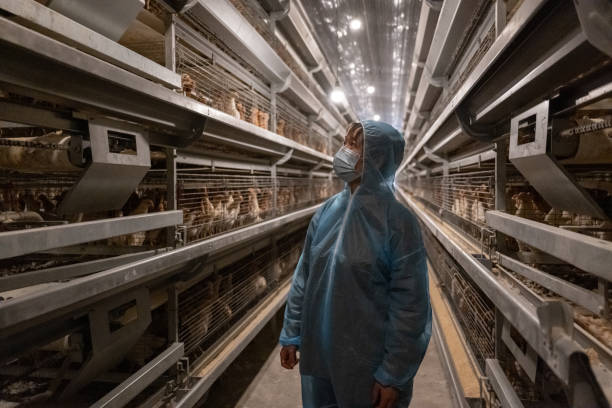
Number of Cages Needed: 2,000 birds / 96 birds per set = approximately 21 sets of cages
Estimated Cost per Cage Set: NGN 150,000 (This is just an example and can vary widely). This can be a lot less if you buy from a place like Livi Machinery.
Total Cage Cost: 21 sets x NGN 150,000 = NGN 3,150,000
Transportation Cost: (Depending on location and supplier) – NGN 50,000 – NGN 150,000
Installation Cost: (Including labor and materials) – NGN 100,000 – NGN 300,000
Electrical and Plumbing: NGN 50,000 – NGN 100,000
Total Estimated Investment: NGN 3,350,000 – NGN 3,700,000
Beyond the Initial Cost: Operational Expenses
While the initial cost of battery cages is a significant consideration, it’s equally important to factor in the ongoing operational expenses. These include:
Feed Costs: Feed is the largest operational expense in poultry farming. The cost of feed depends on the type of feed used, the age of the birds, and the market price of ingredients.
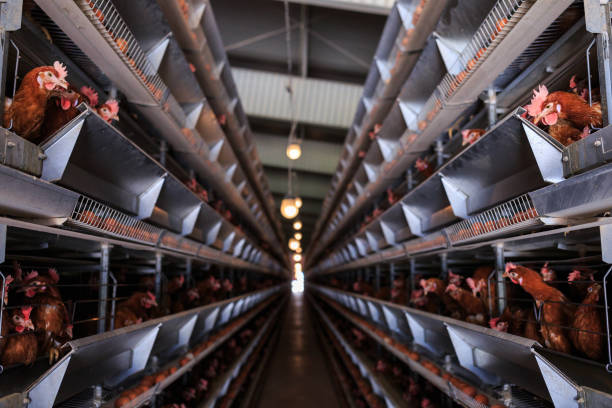
Water Costs: Access to clean and reliable water is essential for poultry production. Water costs include the cost of water itself, as well as the cost of pumping, storage, and distribution.
Labor Costs: Labor costs depend on the level of automation in the cage system and the number of workers required for feeding, watering, egg collection, manure removal, and other tasks.
Veterinary Costs: Regular veterinary visits and vaccinations are necessary to maintain the health of the flock and prevent disease outbreaks.
Medication Costs: Medications may be required to treat sick birds or prevent disease outbreaks.
Electricity Costs: Automated systems require electricity to operate, which can add to the operational expenses.
Maintenance and Repairs: Regular maintenance and repairs are necessary to keep the battery cage system in good working condition.
Waste Disposal: Proper waste disposal is essential for environmental sustainability and biosecurity. Manure removal and disposal costs should be factored into the operational expenses.
Tips for Reducing Battery Cage Costs
Here are some tips for reducing the cost of battery cages without compromising on quality or performance:
Compare Prices from Multiple Suppliers: Don’t settle for the first quote you receive. Shop around and compare prices from multiple suppliers to find the best deal.
Consider Local Manufacturers: Local manufacturers may offer more competitive prices and faster delivery times than international suppliers.
Negotiate with Suppliers: Don’t be afraid to negotiate with suppliers to get a better price. You may be able to negotiate a discount for bulk orders or a lower price for cash payments.
Choose a Cage System that Fits Your Needs: Don’t overspend on features you don’t need. Choose a cage system that is appropriate for your flock size, management style, and budget.
Consider Refurbished Cages: Refurbished battery cages can be a more affordable option than new cages. However, make sure the cages are in good condition and meet your requirements.
Invest in Durable Materials: Choose cages made from durable materials that will last for many years. This will reduce the need for frequent repairs and replacements.
Proper Maintenance: Regular cleaning and maintenance of the cages will help to prolong their lifespan and prevent costly repairs.
Optimize Feeding and Watering: Efficient feeding and watering practices will reduce waste and minimize operational expenses.
Implement Biosecurity Measures: Implement strict biosecurity measures to prevent disease outbreaks and reduce the need for medications.
Making the Right Decision
Investing in battery cages is a significant decision for Nigerian poultry owners. By carefully considering the factors outlined in this article and conducting a thorough cost analysis, you can make an informed decision that will maximize your profitability and ensure the long-term success of your poultry farming business. Remember to choose a reputable supplier, invest in quality materials, and prioritize efficient management practices to optimize your investment and achieve your goals. Good luck!



